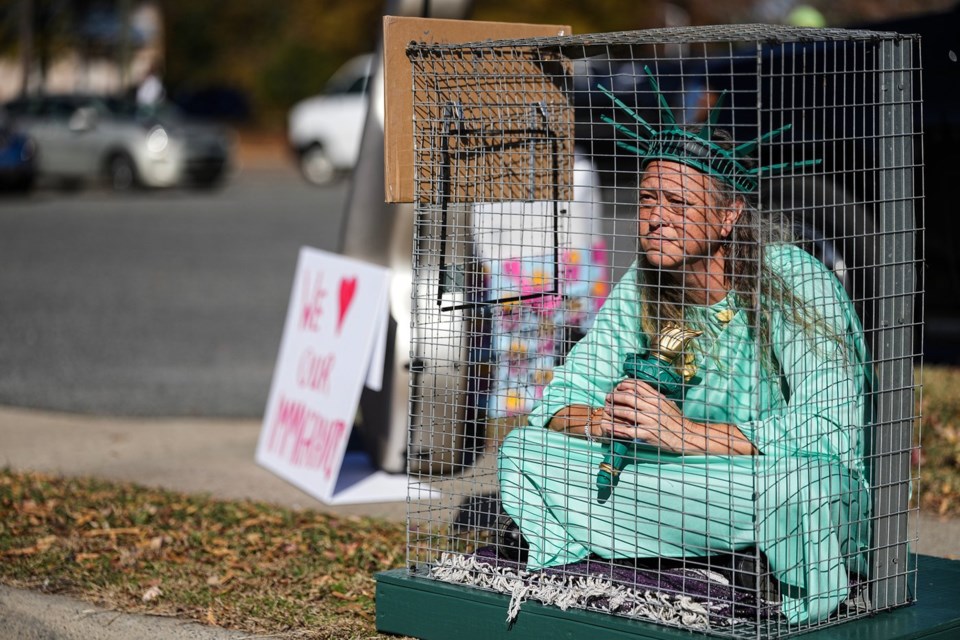Federal immigration enforcement in North Carolina is intensifying, with Raleigh Mayor Janet Cowell confirming Monday that federal agents are preparing to expand operations into the state’s capital as soon as Tuesday. The announcement comes on the heels of a weekend sweep in Charlotte that led to the arrests of more than 130 people and triggered widespread political backlash, community fear and protests.
Cowell said she has received no details about the size or duration of the planned action but emphasized that Raleigh remains committed to public safety. She noted that crime in the city has fallen compared to last year and urged residents to “maintain peace and respect” amid uncertainty. Federal authorities have remained silent on operational plans.
The escalation follows major enforcement actions already underway in Charlotte, where Customs and Border Protection agents have been stationed since the weekend. Residents reported encounters near churches, apartment buildings and shopping areas, fueling concerns about racial profiling and aggressive tactics.
Homeland Security Assistant Secretary Tricia McLaughlin said more than 130 people were arrested for immigration violations, citing criminal histories that included gang ties, assault, shoplifting and other offences. But federal officials did not clarify how many of those cases involved convictions or pending charges.
Local leaders have condemned the operations as heavy-handed and politically motivated. “Masked, heavily armed agents in paramilitary garb driving unmarked cars, targeting American citizens based on their skin color,” North Carolina Gov. Josh Stein said in a video statement. “This is not making us safer. It’s stoking fear and dividing our community.”
Charlotte Mayor Vi Lyles called the situation “deeply concerning,” affirming the city’s support for residents who feel afraid or targeted. Protesters demonstrated peacefully on Monday, with one activist even sitting in a cage dressed as the Statue of Liberty to symbolize what they described as the erosion of civil liberties.
The move into North Carolina marks a significant expansion of the Trump administration’s ongoing immigration crackdown, which previously focused on major cities such as Los Angeles and Chicago. Analysts suggest the choice of North Carolina is partly political: less overtly combative than deep-blue cities yet still home to sanctuary-style policies that restrict local cooperation with federal immigration enforcement.
“They’re not just interested in deporting people — they are interested in the show,” said Rick Su, a professor at the University of North Carolina School of Law, noting that North Carolina offers a politically moderate stage for the administration’s message.
Charlotte’s growing prominence in national debates over crime and immigration also plays a role. This summer’s fatal stabbing of Ukrainian refugee Iryna Zarutska — although the suspect was an American citizen — became a flashpoint in national discussions about safety and enforcement, despite falling crime rates in the city.
Meanwhile, the blame game continues. Republican leaders argue that sheriffs like Mecklenburg County’s Garry McFadden created the problem by refusing for years to honour ICE detainers — a practice the state now mandates by law. GOP House Speaker Destin Hall said agents were “stepping in to clean up his mess,” while the state’s Republican Party chair accused Democrats of prioritizing “criminal illegals” over citizens.
McFadden, who has since met with ICE officials, maintains he supports federal enforcement as long as it is “safe, responsible, and properly coordinated.” But critics on both sides say the political battle is far from over.
With federal agents now preparing to move into Raleigh, tensions across North Carolina continue to rise. Residents, civic leaders and immigrant communities are bracing for what could be the state’s largest immigration enforcement push in years — one with deep political implications and profound human impact.

